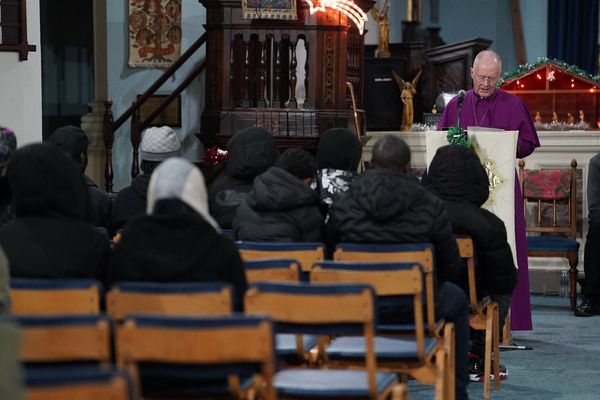
FINAL SITTING WEEK
We made it folks, the final sitting week of the year (and perhaps this Parliament) is upon us. Strap in for a whole load of last-minute pushes to get things passed while pledges are also dropped and no doubt a whole load of accompanying complaining about both things.
As has been well covered over the weekend, the government admitted on Sunday its mis- and disinformation bill is toast. The likes of the ABC and Guardian Australia have been reporting at the same time that long-awaited gambling advertising reforms also won’t be introduced this week.
AAP says there are “30 or so” bills still before Parliament and the government is trying to increase pressure on the Coalition and Greens to cooperate. However, the ABC reports the government is also ditching bills it believes it has no chance of winning a vote on as time runs out to deliver parts of its agenda.
Employment and Workplace Relations Minister Murray Watt is quoted as saying of the gambling reforms: “There simply is not going to be enough time this week to pass that legislation.” To which Greens Senator Sarah Hanson-Young countered: “Talk about priorities… rather than doing the hard work, rather than standing up to the vested interests of the big gambling companies and the big sporting codes and the big media companies, Anthony Albanese and Peter Dutton are squibbing it.”
Talking of Dutton, the Coalition leader had a fairly predictable response to the mis- and disinformation bill being shelved, declaring: “[It] just shows this government can’t get the big calls right. This is a government that is lurching from one disaster to the next and limping to the next election.”
The Sydney Morning Herald reports the Albanese government plans on hardening “its demands on the Greens to pass more than a dozen bills through Parliament in the next four days”.
The paper says the prime minister is aiming to pass the draft laws without a single deal with the Greens and blame the party for any blocking of its legislation during the upcoming election campaign. The SMH says Greens leader Adam Bandt is offering a “pathway” to getting up to 20 bills through Parliament but with amendments on the environment and housing, something the government has already refused to do.
Today the government will issue warnings over the Greens’ demands amid a belief voters will hold the smaller party responsible for blocking measures such as Help to Buy, which is back in the Senate on Tuesday. “This is the week for the Greens to work out whether they will go to the election as an ineffective party of protest,” Housing Minister Clare O’Neil is quoted as saying.
At the weekend, Hanson-Young reportedly signalled a deal could be reached with regards to Environment Minister Tanya Plibersek’s hopes of creating the Environment Protection Australia agency, although logging still seems to be a sticking point, The Sydney Morning Herald flags.
Also happening in the short-term, a package of aged care bills is in the lower house for final approval and Treasurer Jim Chalmers will today introduce a bill offering production tax credits to mining companies that produce vital minerals needed for things like batteries and high-tech devices, the paper adds.
Paul Karp at Guardian Australia (see The Commentariat below) has a comprehensive rundown of the bills the government is likely to have Coalition support for in passing this week and those it looks set to try and barge past the Greens’ amendments — or blame them for when they can’t.
COP29 ANGER
Talking of last-minute deals and the backlash they can receive, climate activists and developing countries have slammed the deal struck at the COP29 summit in Baku, Azerbaijan.
The deal was struck at 2.40am local time on Sunday, over 30 hours after the initial deadline, with an agreement between nearly 200 countries, CNN reports. The deal will see richer countries pay developing nations US$300 billion a year by 2035 to help them tackle climate change.
However, almost immediately after the deal was announced some nations started expressing their displeasure. The BBC reports India’s representative Chandni Raina told the conference: “We cannot accept it … the proposed goal will not solve anything for us. [It is] not conducive to climate action that is necessary to the survival of our country.”
Elsewhere, Nigeria’s envoy Nkiruka Maduekwe called the deal an “insult” and Tina Stege, Marshall Islands’ climate envoy, said: “We are leaving with a small portion of the funding climate-vulnerable countries urgently need.”
The BBC flags poorer countries had been asking for US$1.3 trillion and “many of the rich country voices at the UN’s climate conference were amazed that developing nations were unhappy with what on the surface seems a huge settlement”.
CNN highlights the US$1.3 trillion is what economists say developing nations need to deal with a crisis they have done the least to cause. The broadcaster says the agreement mentions an ambition to scale up the support but the poorer countries want the richer nations to take on more of this total and for the support to be in grants rather than loans.
Tasneem Essop, executive director of Climate Action Network, declared: “This has been the most horrendous climate negotiations in years due to the bad faith of developed countries. This was meant to be the finance COP, but the Global North turned up with a plan to betray the Global South.” Harjeet Singh of the Fossil Fuel Treaty Initiative said the deal “offers false hope to those already bearing the brunt of climate disasters”.
And of course, all the coverage of the summit highlighted the uncertainty that surrounds the return of Donald Trump to the world stage and his plans — or more accurately his lack of plans — for global climate change agreements.
Talking of Trump, The Guardian highlights prominent Republican Senator James Lankford has said Congress would not give blanket approval to the president-elect’s controversial cabinet picks when the public hearings begin in the new year.
“Everyone is going to get a fair shake,” he told CNN.
In domestic news, Guardian Australia highlights this morning that there are plans for an independent review to look into the official definition of terrorism.
The site says national security legislation monitor Jake Blight has claimed he plans to initiate the inquiry next year. “Almost a quarter of a century since 9/11, it really is time that we turned our minds to the fundamental definition of terrorism that underpins so many police powers and underpins so many offences. What I’m trying to do is signal that I think it’s time as a nation that we looked again at the definition of a terrorist act, and I’m open to considering a range of things in that,” he said.
ON A LIGHTER NOTE…
Australian cricket legend Sir Donald Bradman’s baggy green cap is going up for auction next week.
Bradman wore the cap in the 1947-48 home Test series against India, during which he scored his 100th first-class century, the BBC reports.
The cap will go on sale at Bonhams Sydney on December 3 with a pre-sale estimate of $300,000 to $400,000, the AFR says.
Alex Clark, a senior specialist at Bonhams, said: “The baggy green has been part of cricket and sporting heritage for decades.
“This very special baggy green promises to have real appeal to followers of cricket and sport generally, and anyone with a keen interest in the history of sport.”
The less said about how the current Test match against India is going the better…
Say What?
Based on public statements and engagements with senators, it is clear that there is no pathway to legislate this proposal through the Senate.
Michelle Rowland
The communications minister said at the weekend the government had dropped its mis- and disinformation bill in the face of opposition from the Coalition, Greens and crossbenchers.
CRIKEY RECAP
Australia’s human rights commissioner has sounded the alarm on the teen social media ban, warning the “framework” legislation and rushed consultation process have restricted debate about the bill’s impact on children and adults.
This week, human rights commissioner Lorraine Finlay became increasingly vocal about her concerns regarding the federal government’s proposed restrictions on Australians under the age of 16.
Speaking to Crikey, Finlay shared her serious reservations about the bill, introduced to Parliament on Thursday, and the snap decision to send it to committee, which will report back on Tuesday after accepting submissions for a day.
“There is a greater need for a broader discussion,” she said over the phone. “[The bill] is being rushed through and we haven’t had a chance for this discussion.”
Crikey understands Macdonald’s departure came as a shock to staff at the ABC, with an ABC staffer telling Crikey morale was “at an all-time low”, given Macdonald and Marnie’s status as “two of the most loved members of staff”. Tears were said to have flowed in Ultimo as news of Macdonald’s departure circulated.
While giving the Vincent Fairfax Oration for the Cranlana Centre for Ethical Leadership (of which he is a former chair) on Thursday night Williams referenced historian Timothy Snyder’s book On Tyranny in underlining the importance of professional ethics.
Williams, in passing, took a veiled swipe at the “string of scandals relating to the conduct and ethics of large, prominent, respectable Australian enterprises, led by highly-compensated professionals, ranging from management consulting firms to leading banks, from aviation to big supermarkets”.
“We might also note that these scandals have rarely affected the public reputations and careers of those involved, certainly not in any meaningful way. It’s as if these acts of malfeasance are relatively harmless,” Williams said.
This isn’t the first time Labor has tried to interfere — while insisting it isn’t interfering — with a key independent institution. It also used a statement of expectations to nobble the Productivity Commission (PC) this time last year — demanding the PC “take account of the government’s productivity agenda”, including “getting to net zero and becoming a renewable energy superpower”. The PC had already flagged concerns about Labor’s manufacturing subsidies and protectionism in its Future Made In Australia policy, but Chalmers’ statement seemed a warning shot for the PC not to dare criticise key parts of Labor’s policies. Chalmers also directed the PC to consult with government departments more — thus giving economically illiterate departments like Foreign Affairs and Trade a great role in shaping PC work — and to keep the secretary of Treasury in the loop about its activities.
Governments don’t issue these diktats randomly or merely for window dressing. The whole purpose of statements of expectations — a mechanism developed by the Howard government to bring agencies under greater political control — is to signal to senior bureaucrats, including the heads of independent institutions, how politicians expect them to carry out their roles. Chalmers’ new statement for the Future Fund is a set of indicators about where he wants the Future Fund to invest — whether it makes financial sense or not.
READ ALL ABOUT IT
Conservative opposition to social media age limit grows ahead of lower house vote (Guardian Australia)
Inside the talks to bring back the Bali Nine, and why their return is at risk (The Sydney Morning Herald) ($)
Russia ready to hit UK with wave of cyber attacks, minister will warn (Sky News)
Senators bracing for confirmation battles over unorthodox Trump cabinet picks (CNN)
Bill Moyes, Australian ‘birdman’ who popularised hang gliding, dies at 92 (The New York Times) ($)
THE COMMENTARIAT
With one week of parliamentary sittings left, the government finds itself outgunned by a man with simple and angry messages — Laura Tingle (ABC): We are now just a week from the end of parliamentary sittings for the year. All week, Parliament House has been operating with a freneticism which reflects the widespread perception that Parliament will not return next year, either for its scheduled fortnight of February sittings, or for the proposed early budget on March 25.
Whether it does is another story. This is the story of politics as it unfolded this week, brooding under that expectation about next year.
As is probably clear from the opposition leader’s subject descriptions, the purpose of the “doorstop”, which ran for less than 15 minutes, was attacking the government, rather than necessarily outlining any detailed plans of his own.
Deal or No Deal: Can Labor avoid an ‘end-of-year dumpster fire’ and pass its legislative agenda? — Paul Karp (Guardian Australia): Finally, it’s worth noting that the inquiry into gambling led by the late Labor MP Peta Murphy was reported almost a year and a half ago, calling for a three-year phase-in period for a total ban on gambling ads to begin from December 2023.
All signs are there’ll be no bill this week, meaning it’s likely we’ll get halfway through the intended phase-in period without the government having legislated.
The evidence base for the underage social media ban is poor — and yet it’s that bill being rushed through Parliament, not the partial gambling ad ban, much less the full ban.
As the final sitting week concentrates the mind, we’ll learn a lot about the government by what it values highly enough to push through.








